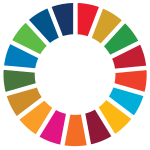Gender Equality: a thread running through the Sustainable Development Goals
Published on Wed, 2019-09-25 14:02
UN SDG Summit: 24-25 September The need for gender equality is being referred to throughout discussions on the SDGs as an important prerequisite to achieving the goals 25 September New York: “There is simply no way we can achieve the 17 SDGs without achieving gender equality and empowering women and girls”. Who said this? A feminist polemicist? No, United Nations Secretary-General Antonio Guterres pointing out that gender equality is the thread running through the 2030 Agenda. “We need to understand that gender equality does not depend only on national efforts to implement the SDGs - it requires new international governance arrangements” says Cecilia Alemany from DAWN, a contributor to Spotlight 2019*, a Civil Society Reflection Group publication that analyses annual progress on the 17 SDGs. A central plank of achieving women’s human rights is the recognition and validation of unpaid care work, and the rights of informal sector workers including in global production chains where women predominate. None of this can be adequately addressed at the national level alone. The feminization of poverty is a continuing global challenge and, at the same time as fighting structural inequalities, women play a central role in reducing poverty and hunger (SDG1), achieving food security and sustainable agriculture (SDG2) and eliminating violence and conflict (SDG16). Women’s position - a barometer of achieving the SDGs A country cannot be said to have achieved equal access to quality education (SDG4) if girls don’t go to secondary school or if those who have reached high levels of education continue to work in the low productive sectors. A population isn’t healthy (SDG3) if women continue to die in childbirth, or gender violence is considered as a normal practice against teenage girls and women. Decent work and social protection (SDG8) aren’t achieved until women’s unpaid work and their lack of social protection is addressed. Providing public services is a state obligation, a human right and a policy tool to fight women’s inequality. “The SDGs aren’t going to be achieved if social services are cut to reduce deficits and women are forced to take over state responsibilities in the face of budget cuts”, says Gita Sen from DAWN. It is important to fight to prevent increased privatisation of public services, as there is clear evidence that free access to public services reduces poverty - in OECD countries this has reduced poverty by 20%. Current decisions on what appear to be very attractive public-private partnerships will impact future policy space and states’ capacity to decide and own their social services provision. More power-sharing in supra-national organisations Without a change “at the top” in international governance, women’s concerns will never be addressed. ”Power is still very masculine everywhere, and it is hard to find women’s rights activists in international financial institutions”, says Alemany. If discussions for achieving SDGs at the SDG Summit are going to lead anywhere, among the measures needed for women’s equality are:
To find out more, please contact: Daphne Davies: Tel/WhatsApp:US: +1 917 291 3560; UK: +447770230251, Daphnedoubled@gmail.com Source: Global Policy Watch (GPW). |



